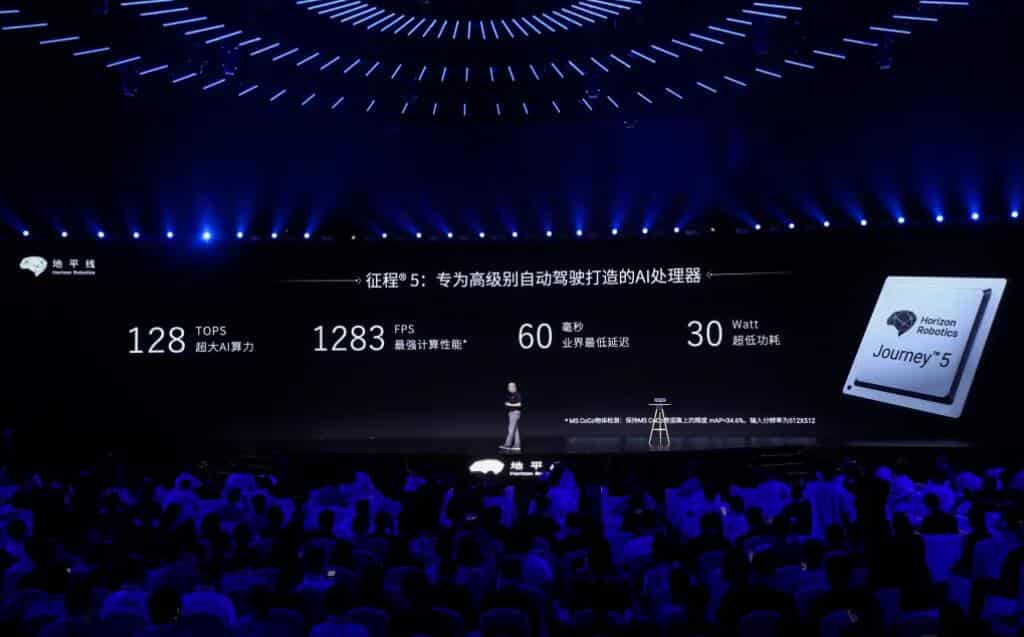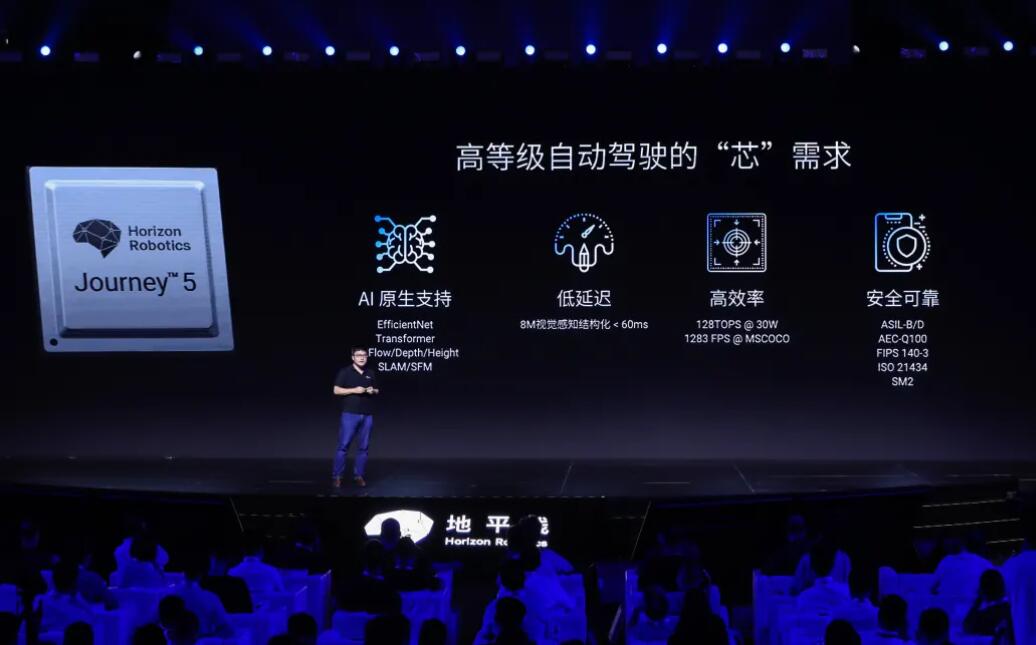Chinese auto chip startup Horizon Robotics unveiled its latest self-driving chip, Journey 5, in Shanghai on Thursday, with a single chip capable of 128 TOPS of AI computing power.
If car companies use multiple chips to build autonomous driving domain controllers, they can reach a maximum of 1,024 TOPS, which can support L4 autonomous driving, the company said.
The Journey 5 chip has an 8-core ARM Cortex A55 CPU and a dual-core Horizon Bayesian architecture Brain Processor Unit (BPU) AI computing unit, according to information released by the company.
The Journey 5 chip has 2 ISP cores, a computer vision engine, 2 DSP cores and a video encoding and decoding unit.
It has a safety island design to ensure the safety and stable operation of the whole system.
The chip has received ASIL-B level functional security product certification, and systems based on the Journey 5 chip meet ASIL-D level security requirements as well as AEC-Q100 Grade 2 certification, the company says.
The Journey 5 chip has a complete encryption engine, supports multiple encryption algorithms and follows the FIPS 140-3 standard and ISO 21434 process.
The chip supports 4x4 MIPI for a total of 16 camera inputs, two Gigabit Ethernet interfaces and four CAN-FDs for radar system integration. It also supports 2 PCIe 3.0 for in-vehicle computing platforms.
A single Journey 5 chip is capable of 16 video inputs and supports multiple sensors including millimeter-wave radar, LiDAR, and ultrasonic radar, according to the company.
Several autonomous driving Tier 1 suppliers have already released domain controllers based on the Journey 5 chip, and Horizon expects them to build Horizon Matrix SuperDrive full-scene, whole-vehicle intelligence solutions based on the chip.
Horizon also unveiled on Thursday the Horizon Matrix SuperDrive full-scope vehicle intelligence solution for intelligent driving, intelligent cockpit interaction, and in-vehicle and out-of-vehicle connectivity.
By the fourth quarter of this year, Horizon expects to launch a demo of a live urban self-driving vehicle based on the Journey 5 chip.
In the second quarter of 2022 Horizon partners will achieve volume production of Journey 5 domain controller hardware, and in the fourth quarter will achieve volume production SOPs for the SuperDrive solution.
In addition, Horizon also released TogetherOS, an open-source safe real-time operating system, developed based on the open-source microkernel seL4.
TogetherOS meets the real-time and functional safety requirements of high-level autonomous driving and is compatible with Linux, Android, Banma, QNX, and HarmonyOS.


